Yu-Han Chao's Blog, page 3
June 23, 2020
Coronavirus Facts for Kids
Published on June 23, 2020 14:19
April 28, 2020
Pandemic, Night (for Pos Moua)
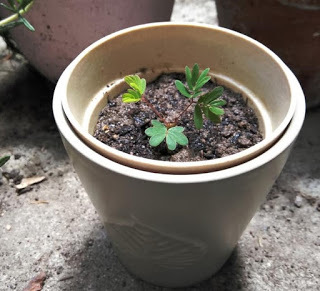
The gardener has gone.
Rain lily drooping,
beloved shy grass
made it through miraculous winters,
lasting through the coldest months,
then turned yellow,
losing its last leaves.
There lay secret hope
life was
forever
and not just through
poems.
If this is the bird nest on the ground
lying sideways in the dirt
with nothing but fluff inside
where are the baby birds?
(those cotton balls on a
Japanese island?)
Mystery lettuce and spring onions sprung
from dead earth
grass roots
butterfly garden planted with
favorite teacher
old artichoke
new tomatoes
baby Myer lemon
Mandarin orange
Mandarin spoken at home--
sort of.
An old Wurlitzer arriving in time
almost missed the child
quarantined from child
then got her back
for Debussy
and baby trees.
I-ready?
You are not. You are missing
a to-be verb.
Your sunflower may be tall,
xgg123@mcsd.edu, but
Google Classroom
is not social media.
Class Dojo
will earn you no
belts.
We wear masks,
chalk driveways,
and facetime Ah Gong
with noodle magic,
forts and filters.
Is shortness of breath
a valid symptom
when it’s from
wearing a mask
rebreathing CO2
for over twelve hours?
Should I check myself into
the ER
after my shift?
Checked my oxygen saturation
after checking my patients’.
It was 100%
every time.
0% sympathy.
Where is the
loratadine?
Mother Nature
(deadly combination of all the
pissed-off Greek goddesses:
bereft mothers, jealous
wives, disrespected
warrior virgins) is
out for blood.
Flowers bloom everywhere,
laughing in the faces of
humans in masks.
The push mower misses
grassy middle fingers
and fifty baby trees.
If we all die,
a forest will form
overnight.
We shall return as
forest spirits
picked up by private Catbus
Totoro theme song playing
on cracked keys of
haunted pianos.
Published on April 28, 2020 22:14
April 18, 2020
Thank You!
A big thank you to members of the local community, police department, fire department, Merced College, local restaurants and businesses who have contributed personal protective equipment, food (for healthcare workers or for cancer patients), and many more things to the hospital!
For more ways to help, visit: https://www.supportmercymerced.org/donation-pages/emergency-response-donation-page
Thank you so much to many members of the Taiwanese and Asian-American community at large for donating masks to Mercy Medical Center, including J. Chang, M. Chen, T. Fu, Y. Liao, J. Mu, Y. Tseng, S. Ou, C. Yang, Y. Yang, as well as generous shipments from the SF Bay Area Lions Club and the Taiwanese American Chambers of Commerce--NA.
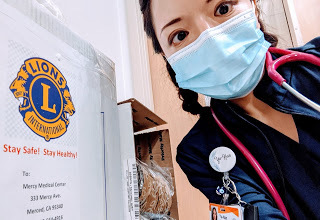
If you're staying at home, you're contributing a lot, too! Keep up the good work of saving lives from home by staying at home, and being part of the solution, not part of the problem.
Because natural selection is happening as we speak.
It is impossible to talk about all the things that are happening across the world, in various political entities, institutions and industries, but history is definitely being made. Each of you are making history with your decisions and actions (which a minute will not reverse).
Those of you who have sent thoughtful messages essentially to check if I'm still alive, yes, I am. Still haven't been to a store or restaurant since 3/12, and while I'm not out of eggs or instant noodles, I'm thrilled that the hospital is providing options for our workers to order and pick up groceries in-house. (Wait, does that count as "in the community"?)
Stay safe out there. Our hearts go out to everyone at skilled nursing facilities in particular--things were hard enough there even before the rona...
For more ways to help, visit: https://www.supportmercymerced.org/donation-pages/emergency-response-donation-page
Thank you so much to many members of the Taiwanese and Asian-American community at large for donating masks to Mercy Medical Center, including J. Chang, M. Chen, T. Fu, Y. Liao, J. Mu, Y. Tseng, S. Ou, C. Yang, Y. Yang, as well as generous shipments from the SF Bay Area Lions Club and the Taiwanese American Chambers of Commerce--NA.

If you're staying at home, you're contributing a lot, too! Keep up the good work of saving lives from home by staying at home, and being part of the solution, not part of the problem.
Because natural selection is happening as we speak.
It is impossible to talk about all the things that are happening across the world, in various political entities, institutions and industries, but history is definitely being made. Each of you are making history with your decisions and actions (which a minute will not reverse).
Those of you who have sent thoughtful messages essentially to check if I'm still alive, yes, I am. Still haven't been to a store or restaurant since 3/12, and while I'm not out of eggs or instant noodles, I'm thrilled that the hospital is providing options for our workers to order and pick up groceries in-house. (Wait, does that count as "in the community"?)
Stay safe out there. Our hearts go out to everyone at skilled nursing facilities in particular--things were hard enough there even before the rona...
Published on April 18, 2020 13:17
March 26, 2020
Quality of Life
Aside from work at the hospital, I haven't been inside the walls of a store or public space since 3/12, when they announced the elementary schools were closing. That evening I got rice, potatoes, pasta, eggs, instant noodles, and prepared to live simply.
There's something people don't realize about this stay-at-home business. "Stay at home" means stay at home. In order to protect yourself, your family, and especially those in the community more susceptible to illness, you (and everybody else's who's doing this) simply can't keep going to the stores constantly for things, and even going as far as searching several stores because you really want that one thing.
In the current situation, you cannot expect to live the same quality of life you did before. Actually, since you homeschool now, your quality of life is ruined anyway, so everybody needs to seriously lower their standards...for everything.
This is a pandemic. People are dying. You cannot expect the same level of gourmet meals, comfort food, craving-satisfaction, homework completion, zero-screen-time, etc. This is not a divorce from a wealthy ex, where you get to demand all the things you think you deserve, the quality of life you were accustomed to before. This is life or death, and your behavior can save lives or hasten the death of exponential numbers of strangers or even loved ones.
Aside from thinking of others when I stay at home, I'm also thinking of myself. It makes my blood boil to hear that UC Davis and those Boston hospitals are claiming that their healthcare workers that tested positive had been exposed "in the community" and not at work. Really? You think? They work 12 hour shifts at a hospital around all the rona positive patients, but for sure they were exposed while walking their dog or getting gas?
So yeah, no stores for me, because if I get sick, nobody gets to say I "got it in the community".
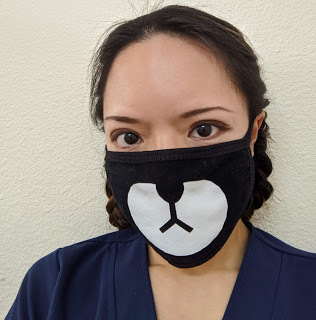 Unamused Bear is unamused.
Unamused Bear is unamused.
There's something people don't realize about this stay-at-home business. "Stay at home" means stay at home. In order to protect yourself, your family, and especially those in the community more susceptible to illness, you (and everybody else's who's doing this) simply can't keep going to the stores constantly for things, and even going as far as searching several stores because you really want that one thing.
In the current situation, you cannot expect to live the same quality of life you did before. Actually, since you homeschool now, your quality of life is ruined anyway, so everybody needs to seriously lower their standards...for everything.
This is a pandemic. People are dying. You cannot expect the same level of gourmet meals, comfort food, craving-satisfaction, homework completion, zero-screen-time, etc. This is not a divorce from a wealthy ex, where you get to demand all the things you think you deserve, the quality of life you were accustomed to before. This is life or death, and your behavior can save lives or hasten the death of exponential numbers of strangers or even loved ones.
Aside from thinking of others when I stay at home, I'm also thinking of myself. It makes my blood boil to hear that UC Davis and those Boston hospitals are claiming that their healthcare workers that tested positive had been exposed "in the community" and not at work. Really? You think? They work 12 hour shifts at a hospital around all the rona positive patients, but for sure they were exposed while walking their dog or getting gas?
So yeah, no stores for me, because if I get sick, nobody gets to say I "got it in the community".
 Unamused Bear is unamused.
Unamused Bear is unamused.
Published on March 26, 2020 21:47
March 19, 2020
COVID-19 Nightmare
In my dream, I am at work on a busy hospital unit, and suddenly an announcement comes on overhead.
Instead of the usual breakfast/lunch/dinner-tray/quiet-time/paging doctor-so-and-so overhead, the operator solemnly informs us that we have all been exposed to COVID-19* (which in this nightmare has mutated to become stronger and more contagious than ever) and it is with great regret that the administrators have had to make a difficult decision. Due to airborne contamination, everyone currently in the hospital will be force-quarantined in the building so we do not infect others in the community.**

We are to eat, sleep, bathe (CHG? sink? baby wipes?), and work alternative twelve-hour shifts in the hospital for the foreseeable future.
The interdisciplinary healthcare workers who are here in the hospital will all do the best we can for the many infected patients within the facility. The hospital is stretched to capacity, no empty beds, the ICU full. Nobody can come in, and noone can leave. Physicians, Dieticians, Occupational Therapists, Pharmacists, Nurse Practitioners, Registered Nurses, Respiratory Therapists, Certified Nursing Assistants, Residents, Physical Therapists, no matter--we live here now. Make your phone calls and arrange for childcare, elder care, etc. Tell your children you love them dearly. Hopefully your phone is charged. (We can never find those complimentary, universal chargers...)
I wake up in the middle of the night in cold sweat, thinking to myself, I should pack my phone charger and an eyebrow pencil for work, that would be a good idea...it would be awful to be phone-less and without eyebrows while living and working indefinitely in the hospital.
The only silver lining that briefly occurred to me in the dream, in the midst of utter devastation regarding being separated from my daughter and maybe working here until I become symptomatic, go to ICU, and die, is that the hospital cafeteria is a pokestop. (I've always wanted to live at a pokestop, but not like this...)
*They did just announce the first positive case in our area.
**This is literally a nightmare I had, and not reality. This would never happen (--right? Pretty sure it would be a human rights violation of some sort.)
Instead of the usual breakfast/lunch/dinner-tray/quiet-time/paging doctor-so-and-so overhead, the operator solemnly informs us that we have all been exposed to COVID-19* (which in this nightmare has mutated to become stronger and more contagious than ever) and it is with great regret that the administrators have had to make a difficult decision. Due to airborne contamination, everyone currently in the hospital will be force-quarantined in the building so we do not infect others in the community.**

We are to eat, sleep, bathe (CHG? sink? baby wipes?), and work alternative twelve-hour shifts in the hospital for the foreseeable future.
The interdisciplinary healthcare workers who are here in the hospital will all do the best we can for the many infected patients within the facility. The hospital is stretched to capacity, no empty beds, the ICU full. Nobody can come in, and noone can leave. Physicians, Dieticians, Occupational Therapists, Pharmacists, Nurse Practitioners, Registered Nurses, Respiratory Therapists, Certified Nursing Assistants, Residents, Physical Therapists, no matter--we live here now. Make your phone calls and arrange for childcare, elder care, etc. Tell your children you love them dearly. Hopefully your phone is charged. (We can never find those complimentary, universal chargers...)
I wake up in the middle of the night in cold sweat, thinking to myself, I should pack my phone charger and an eyebrow pencil for work, that would be a good idea...it would be awful to be phone-less and without eyebrows while living and working indefinitely in the hospital.
The only silver lining that briefly occurred to me in the dream, in the midst of utter devastation regarding being separated from my daughter and maybe working here until I become symptomatic, go to ICU, and die, is that the hospital cafeteria is a pokestop. (I've always wanted to live at a pokestop, but not like this...)
*They did just announce the first positive case in our area.
**This is literally a nightmare I had, and not reality. This would never happen (--right? Pretty sure it would be a human rights violation of some sort.)
Published on March 19, 2020 19:54
March 15, 2020
FLU (2013)
If you haven't seen the 2013 Korean movie, Flu, it captures the zeitgeist (spirit of the times) in a completely unrealistic, often infuriating K-drama way that can be very, very difficult to watch, especially right now.
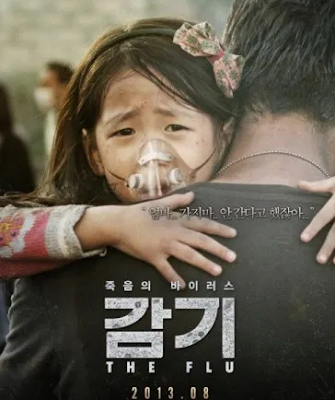 An H5N1 flu outbreak begins in south Korea with a shipping container containing immigrants (westerners aren't the only xenophobes), and before long all chaos breaks lose in the form of an airborne pandemic that kills most people it infects in 36 hours. Mysterious rashes, coughing up of blood, panic shopping, separated families, forced quarantines in camps, lies, and military/government brutality ensue.
An H5N1 flu outbreak begins in south Korea with a shipping container containing immigrants (westerners aren't the only xenophobes), and before long all chaos breaks lose in the form of an airborne pandemic that kills most people it infects in 36 hours. Mysterious rashes, coughing up of blood, panic shopping, separated families, forced quarantines in camps, lies, and military/government brutality ensue.
It doesn't help that just about everyone in the movie, including the medical workers, are wearing the wrong kind of mask. Worse yet, the female lead, a doctor who should know better, repeatedly leaves her super cute 6-year-old daughter home alone, free to roam the neighborhood, touch sick people, and ride in the car of a strange man with a compulsive hero complex.
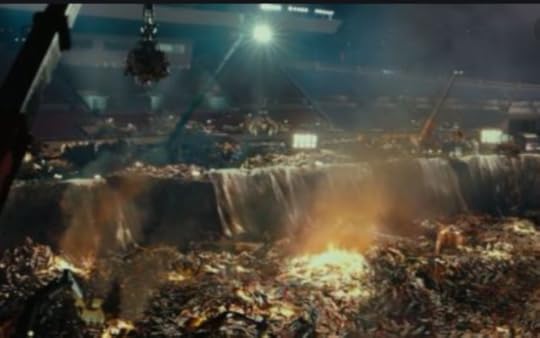 Also difficult to watch: the massive-incinerator-corpse-claw-machine scene...
Also difficult to watch: the massive-incinerator-corpse-claw-machine scene...
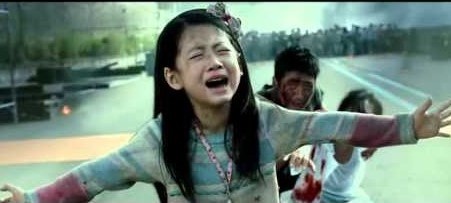 and the Please-don't-shoot-my-Mommy scene.
and the Please-don't-shoot-my-Mommy scene.
But back to real life.
People love asking, are you still alive? How are things in the hospital? Are there cases?
While some say it is just a matter of time, there are no confirmed cases in Merced as of this writing, and though local colleges have switched to online classes, the clinical portions of nursing schools are continuing in person. My Stan State community health clinicals should be...interesting.
My kid's public elementary school is operating as usual, and she reports that they now wash their hands two times a day, as opposed to the previous zero times a day. Childcare and food access are a problem if all the kids stayed home, but allowing adorable little viral incubators* who can't stop touching one another or their faces to continue socializinig, then go home and touch their families, including grandma and grandpa, may not be the greatest idea, either.
And, Dad: can you just watch church on TV for a bit? There are cases in your area.
*as Dr. Modaferri refers to them
 An H5N1 flu outbreak begins in south Korea with a shipping container containing immigrants (westerners aren't the only xenophobes), and before long all chaos breaks lose in the form of an airborne pandemic that kills most people it infects in 36 hours. Mysterious rashes, coughing up of blood, panic shopping, separated families, forced quarantines in camps, lies, and military/government brutality ensue.
An H5N1 flu outbreak begins in south Korea with a shipping container containing immigrants (westerners aren't the only xenophobes), and before long all chaos breaks lose in the form of an airborne pandemic that kills most people it infects in 36 hours. Mysterious rashes, coughing up of blood, panic shopping, separated families, forced quarantines in camps, lies, and military/government brutality ensue.It doesn't help that just about everyone in the movie, including the medical workers, are wearing the wrong kind of mask. Worse yet, the female lead, a doctor who should know better, repeatedly leaves her super cute 6-year-old daughter home alone, free to roam the neighborhood, touch sick people, and ride in the car of a strange man with a compulsive hero complex.
 Also difficult to watch: the massive-incinerator-corpse-claw-machine scene...
Also difficult to watch: the massive-incinerator-corpse-claw-machine scene... and the Please-don't-shoot-my-Mommy scene.
and the Please-don't-shoot-my-Mommy scene.But back to real life.
People love asking, are you still alive? How are things in the hospital? Are there cases?
While some say it is just a matter of time, there are no confirmed cases in Merced as of this writing, and though local colleges have switched to online classes, the clinical portions of nursing schools are continuing in person. My Stan State community health clinicals should be...interesting.
My kid's public elementary school is operating as usual, and she reports that they now wash their hands two times a day, as opposed to the previous zero times a day. Childcare and food access are a problem if all the kids stayed home, but allowing adorable little viral incubators* who can't stop touching one another or their faces to continue socializinig, then go home and touch their families, including grandma and grandpa, may not be the greatest idea, either.
And, Dad: can you just watch church on TV for a bit? There are cases in your area.
*as Dr. Modaferri refers to them
Published on March 15, 2020 09:01
February 3, 2020
Normoglycemia = Basic Human Right
What is the cost of insulin? For some people, the cost is their limbs, kidneys, vision, or even their lives.
If one cannot afford their food or living expenses, one cannot afford $300 vials of insulin.
Insulin is a pancreatic hormone that helps skeletal muscles use sugar and also regulates the body's use of protein, carbs and fat for energy. High levels of sugar in the blood stream as a result of lack of insulin or decreased sensitivity to insulin leads to many complications. Damaged blood vessels can lead to stroke, heart attack, and amputations. Sensory issues such as nerve damage/neuropathy and blindness can occur from impaired circulation. Organs, such as the kidneys or the brain, can also suffer damage due to decreased blood flow.
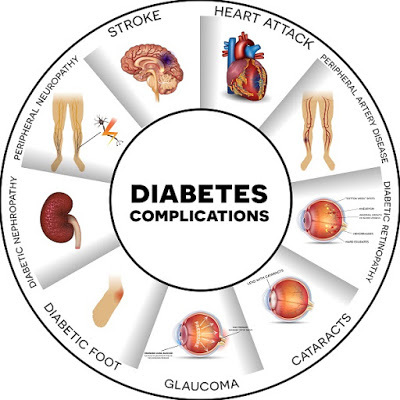
Call me naive, but I think normoglycemia, having blood sugar levels within normal range, should be a basic human right, not a privilege that comes with good health insurance.
Some people say, well, if these people ate healthier maybe they would not get diabetes. First of all, genetics has a lot to do with diabetes, as do cultural practice and socioeconomic status. Second, diet and lifestyle do not cause type I diabetes. The archetypical type I diabetic can be quite thin and frail, because their pancreases make no insulin and cannot properly use or regulate sugars. This is dangerous because extreme blood sugar levels can lead to a diabetic coma. Diabetic or not, we all need insulin (whether made by our bodies or synthetic) to stay alive. Staying alive is a basic human right, no?
The worst of it is that the "inventors" of insulin sold the patent for $1 because they believed that it should be free. What happened? Big pharmaceutical companies tweaked the formula slightly, continuously, to "evergreen" new patents so they could charge top dollar for tiny vials or injector pens of the life-saving synthetic hormone.
According to modernhealthcare.com, "The average cost of a prescription has risen from $405 in 2013 to $666 in 2016" (Johnson). Do we need further proof that the devil (or Lucifer Morningstar, if you're a fan) had a hand in this?
Until gross healthcare inequalities are remedied, people with an emergent need for insulin may go to local emergency rooms to have immediately life-threatening complications addressed. Some Walmarts sell lower-cost regular and intermediate-acting insulin without a prescription. Those who qualify for the Reduced Rx program can get better prices on insulin, and some community health centers such as Golden Valley may also help clients gain access to more affordable insulin.
In the face of patients with repeat amputations and dangerous complications due to "noncompliance" with blood sugar checks and insulin injections, we must consider that some simply cannot afford medication compliance, because the system has made compliance more costly (in the immediate sense) than life or limb.
However, in the end, amputations, infections and diabetic emergencies cost the system (not to mention the patient) far more than insulin would have, so it makes financial sense for those with diabetes to have better access to the meds they need in the first place.
The United Nation's declaration of basic human rights includes "3. The Right to Life," which arguably could include 3c. normoglycemia. It's all a work in progress.
If one cannot afford their food or living expenses, one cannot afford $300 vials of insulin.
Insulin is a pancreatic hormone that helps skeletal muscles use sugar and also regulates the body's use of protein, carbs and fat for energy. High levels of sugar in the blood stream as a result of lack of insulin or decreased sensitivity to insulin leads to many complications. Damaged blood vessels can lead to stroke, heart attack, and amputations. Sensory issues such as nerve damage/neuropathy and blindness can occur from impaired circulation. Organs, such as the kidneys or the brain, can also suffer damage due to decreased blood flow.

Call me naive, but I think normoglycemia, having blood sugar levels within normal range, should be a basic human right, not a privilege that comes with good health insurance.
Some people say, well, if these people ate healthier maybe they would not get diabetes. First of all, genetics has a lot to do with diabetes, as do cultural practice and socioeconomic status. Second, diet and lifestyle do not cause type I diabetes. The archetypical type I diabetic can be quite thin and frail, because their pancreases make no insulin and cannot properly use or regulate sugars. This is dangerous because extreme blood sugar levels can lead to a diabetic coma. Diabetic or not, we all need insulin (whether made by our bodies or synthetic) to stay alive. Staying alive is a basic human right, no?
The worst of it is that the "inventors" of insulin sold the patent for $1 because they believed that it should be free. What happened? Big pharmaceutical companies tweaked the formula slightly, continuously, to "evergreen" new patents so they could charge top dollar for tiny vials or injector pens of the life-saving synthetic hormone.
According to modernhealthcare.com, "The average cost of a prescription has risen from $405 in 2013 to $666 in 2016" (Johnson). Do we need further proof that the devil (or Lucifer Morningstar, if you're a fan) had a hand in this?
Until gross healthcare inequalities are remedied, people with an emergent need for insulin may go to local emergency rooms to have immediately life-threatening complications addressed. Some Walmarts sell lower-cost regular and intermediate-acting insulin without a prescription. Those who qualify for the Reduced Rx program can get better prices on insulin, and some community health centers such as Golden Valley may also help clients gain access to more affordable insulin.
In the face of patients with repeat amputations and dangerous complications due to "noncompliance" with blood sugar checks and insulin injections, we must consider that some simply cannot afford medication compliance, because the system has made compliance more costly (in the immediate sense) than life or limb.
However, in the end, amputations, infections and diabetic emergencies cost the system (not to mention the patient) far more than insulin would have, so it makes financial sense for those with diabetes to have better access to the meds they need in the first place.
The United Nation's declaration of basic human rights includes "3. The Right to Life," which arguably could include 3c. normoglycemia. It's all a work in progress.
Published on February 03, 2020 09:04
January 25, 2020
Coronavirus
Everybody, including a new Netflix docu-series, is talking about the unpredictability of viruses that hop from animal to human and dig their spiked, mutated talons into our poor, unprepared immune systems.
SARS (*chirp*), H1N1 (*oink*), Zika (*bzzzz*), and now, introducing the all new Coronavirus (*refreshing bottle opening sound*--just because we humans can't hear the high-pitched sounds bats make, except when they're flapping their wings as they leave our bedrooms, Bram Stoker style.)
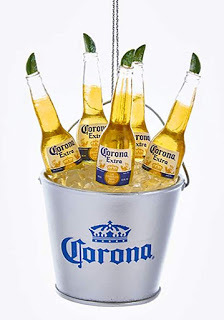
At this point, we are told, everyone needs to be "on high alert." Travel restrictions, quarantines, and all the masks one can get their hands on are in order.
By the way, most flat masks only protect others from you spraying viruses on them and do little to protect the wearer from other people's cooties. The masks that better protect the wearer from the dreaded viral incubators that are OTHER PEOPLE are 1) domed or 2) duck-bill-shaped N-95 masks.
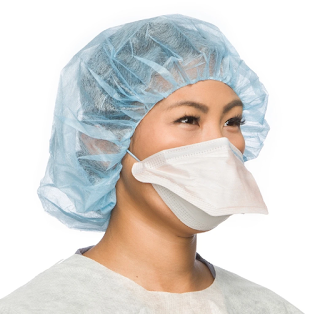 N-95 mask (*quack*)
N-95 mask (*quack*)
Staying away from crowds and sick people, frequent handwashing and not touching the face or eyes also are a good idea.
There's nothing like a good old media-fueled virus scare, which, like a horror movie, quickly becomes elevated to the level of apocalyptic doomsday prophesy by xenophobia and paranoia. I can see it already: a straight-to-Netflix (aka Netflix original) movie about the last humans on earth after the final pandemic flu (aka "The Big One"). It'll be Bird Box meets 2012 meets 2001: A Space Odyssey. It will trend.
I should probably start walking around wearing a N-95 mask all day, just because I'm Asian and might as well be from Wuhan because nobody can ever tell the difference anyway, bless their hearts.
Happy Chinese New Year, by the way.
SARS (*chirp*), H1N1 (*oink*), Zika (*bzzzz*), and now, introducing the all new Coronavirus (*refreshing bottle opening sound*--just because we humans can't hear the high-pitched sounds bats make, except when they're flapping their wings as they leave our bedrooms, Bram Stoker style.)

At this point, we are told, everyone needs to be "on high alert." Travel restrictions, quarantines, and all the masks one can get their hands on are in order.
By the way, most flat masks only protect others from you spraying viruses on them and do little to protect the wearer from other people's cooties. The masks that better protect the wearer from the dreaded viral incubators that are OTHER PEOPLE are 1) domed or 2) duck-bill-shaped N-95 masks.
 N-95 mask (*quack*)
N-95 mask (*quack*)Staying away from crowds and sick people, frequent handwashing and not touching the face or eyes also are a good idea.
There's nothing like a good old media-fueled virus scare, which, like a horror movie, quickly becomes elevated to the level of apocalyptic doomsday prophesy by xenophobia and paranoia. I can see it already: a straight-to-Netflix (aka Netflix original) movie about the last humans on earth after the final pandemic flu (aka "The Big One"). It'll be Bird Box meets 2012 meets 2001: A Space Odyssey. It will trend.
I should probably start walking around wearing a N-95 mask all day, just because I'm Asian and might as well be from Wuhan because nobody can ever tell the difference anyway, bless their hearts.
Happy Chinese New Year, by the way.
Published on January 25, 2020 08:22
December 26, 2019
WBC = White Blood Cells
I've been trying to write this post for over a year, since my good friend passed away suddenly from two kinds of leukemia, myeloid and lymphoid, both acute. She was survived by two very young children, passing just days after she received the diagnosis, only months after having her second baby.
Every time I read or hear or see something I know my friend would appreciate and want to share whatever it is with her, only to realize I cannot anymore, I look up leukemia. What I seek is an answer to the universal question: Why? My friend was in her 30s, did yoga, ate healthy, even ran marathons. (I have not run a marathon in my life. Not one. Don't eat great or do yoga, either.)
Scientists are not sure what causes leukemia. Like most other cancers (besides lung cancer-- smoking is a pretty certain way to get lung cancer), the causes are a vague interaction of genetics, environment, and can't-catch-a-break.
If you look at the family tree of white blood cells below, you will see how if your myeloid and lymphoid progenitors are both messed up, that can quickly become incompatible with defending yourself against the lethal game called Life. It's like a choose your own adventure story where all the endings are (necessary to avoid) death.
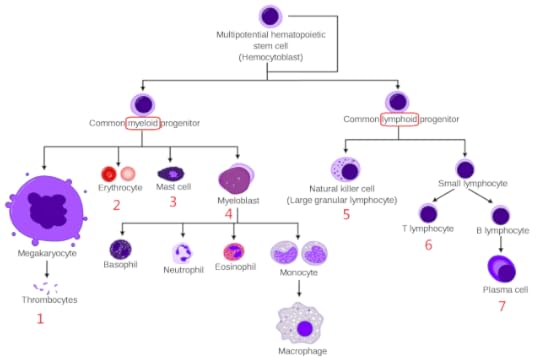 1. Without the megakaryocyte to shed thrombocytes (platelets), blood cannot clot. Bleeding out becomes a risk, sometimes internally, when there are no signs until it is too late.
1. Without the megakaryocyte to shed thrombocytes (platelets), blood cannot clot. Bleeding out becomes a risk, sometimes internally, when there are no signs until it is too late.
2. Without erythrocytes (red blood cells), the body's cells lose its little friends that bring oxygen. Without oxygen for aerobic metabolism, cells have nowhere to go except downhill as it rains lactic acid.
3. Well, at least without mast cells, severe allergic reactions requiring epi pens are less likely.
4. Without the myeloblast, there are no basophils for inflammation (which can be protective sometimes), neutrophils to attack bacteria and fungi, eosinophils to get the parasites, or monocytes and macrophages to gobble up bad guys.
5. Without natural killer cells, who will poke holes in bad guys so they pop and spill their innards?
6. Without the T lymphocyte clone army, all is lost in the war against pathogens.
7. Without B lyphocytes and plasma cells, forget vaccination because there are no antibodies (or lemons) anyway.
With leukemia, not only does one not form normally functioning cell elements, the abnormal cells crowd out what functional cells remain, so all the above problems of bleeding and no immune system become worse.
And people lose their friends, their family, babies lose their Mommy.
But not always.
Leukemia can be survivable, as seen in the case of Janice in episode 33 of Peanuts, "Why, Charlie Brown, Why?"
We still do not know why, Charlie Brown.
Every time I read or hear or see something I know my friend would appreciate and want to share whatever it is with her, only to realize I cannot anymore, I look up leukemia. What I seek is an answer to the universal question: Why? My friend was in her 30s, did yoga, ate healthy, even ran marathons. (I have not run a marathon in my life. Not one. Don't eat great or do yoga, either.)
Scientists are not sure what causes leukemia. Like most other cancers (besides lung cancer-- smoking is a pretty certain way to get lung cancer), the causes are a vague interaction of genetics, environment, and can't-catch-a-break.
If you look at the family tree of white blood cells below, you will see how if your myeloid and lymphoid progenitors are both messed up, that can quickly become incompatible with defending yourself against the lethal game called Life. It's like a choose your own adventure story where all the endings are (necessary to avoid) death.
 1. Without the megakaryocyte to shed thrombocytes (platelets), blood cannot clot. Bleeding out becomes a risk, sometimes internally, when there are no signs until it is too late.
1. Without the megakaryocyte to shed thrombocytes (platelets), blood cannot clot. Bleeding out becomes a risk, sometimes internally, when there are no signs until it is too late.2. Without erythrocytes (red blood cells), the body's cells lose its little friends that bring oxygen. Without oxygen for aerobic metabolism, cells have nowhere to go except downhill as it rains lactic acid.
3. Well, at least without mast cells, severe allergic reactions requiring epi pens are less likely.
4. Without the myeloblast, there are no basophils for inflammation (which can be protective sometimes), neutrophils to attack bacteria and fungi, eosinophils to get the parasites, or monocytes and macrophages to gobble up bad guys.
5. Without natural killer cells, who will poke holes in bad guys so they pop and spill their innards?
6. Without the T lymphocyte clone army, all is lost in the war against pathogens.
7. Without B lyphocytes and plasma cells, forget vaccination because there are no antibodies (or lemons) anyway.
With leukemia, not only does one not form normally functioning cell elements, the abnormal cells crowd out what functional cells remain, so all the above problems of bleeding and no immune system become worse.
And people lose their friends, their family, babies lose their Mommy.
But not always.
Leukemia can be survivable, as seen in the case of Janice in episode 33 of Peanuts, "Why, Charlie Brown, Why?"
We still do not know why, Charlie Brown.
Published on December 26, 2019 10:33
December 14, 2019
Nursing Instinct
Patricia Benner describes nursing intuition as part of the art of nursing, an instinct used subconsciously by experienced, expert nurses. In nursing school, our instructors talked about a "spidey sense" or sixth sense which we baby nurses may one day develop. Any number of us, from student nurse to new nurse to new parent, however, can benefit from listening to our guts from time to time. At the very least, it points us in a good direction to gather more data.
Nursing intution is a widely recognized phenomenon and current research validates the clinical significance of nursing instinct.
A 2016 qualitative and quantitative study by Lora Cork, FNP, proves nursing intuition as statistically valid as objective data in predicting the severity of injury in trauma patients in the emergency department. If nothing else is going to tell you, your spidey sense is better than nothing when a patient is secretly bleeding internally or about to throw a clot in the lungs (pulmonary embolism), brain (stroke), or heart ( <3 attack).
Evident through interviews and review of medical records, intuition is used effectively by intensive care nurses as well (Hassani et al.). Experienced ICU nurses can often tell a patient is about go downhill before observable signs appear. If healthcare workers are ahead of the game, patients have a better shot at this no-fun game show called Life.
Similarly, parental intuition can be helpful in pediatric case studies (Renz), partly because parents know their children far better a healthcare worker meeting them for the first time. Not only does Mother know best, sometimes she knows worst before anyone else.
So what do we do with a feeling that something is wrong, even if no evidence jumps out immediately? Use that hunch to look for more clues--trending laboratory levels, vital signs, suggesting possible imaging/tests, or simply examining the patient more and asking more questions.
Often, as a parent or as a nurse, when we feel like something is wrong, it just might be, and catching something before it becomes more serious can go a long way towards better outcomes.
 References
References
Cork, L. L. (2014). Nursing intuition as an assessment tool in predicting severity of injury in trauma patients. Journal of Trauma Nursing 21(5), 244–252.
Hassani, P., Abdi, A., Jalali, R., & Salari, N. (2016). Use of intuition by critical care nurses: a phenomenological study. Advances in Medical Education and Practice 7, 5-71.
Renz, M. C. (1993). Learning from intuition. Nursing, 23(7), 44–45.
Nursing intution is a widely recognized phenomenon and current research validates the clinical significance of nursing instinct.
A 2016 qualitative and quantitative study by Lora Cork, FNP, proves nursing intuition as statistically valid as objective data in predicting the severity of injury in trauma patients in the emergency department. If nothing else is going to tell you, your spidey sense is better than nothing when a patient is secretly bleeding internally or about to throw a clot in the lungs (pulmonary embolism), brain (stroke), or heart ( <3 attack).
Evident through interviews and review of medical records, intuition is used effectively by intensive care nurses as well (Hassani et al.). Experienced ICU nurses can often tell a patient is about go downhill before observable signs appear. If healthcare workers are ahead of the game, patients have a better shot at this no-fun game show called Life.
Similarly, parental intuition can be helpful in pediatric case studies (Renz), partly because parents know their children far better a healthcare worker meeting them for the first time. Not only does Mother know best, sometimes she knows worst before anyone else.
So what do we do with a feeling that something is wrong, even if no evidence jumps out immediately? Use that hunch to look for more clues--trending laboratory levels, vital signs, suggesting possible imaging/tests, or simply examining the patient more and asking more questions.
Often, as a parent or as a nurse, when we feel like something is wrong, it just might be, and catching something before it becomes more serious can go a long way towards better outcomes.
 References
ReferencesCork, L. L. (2014). Nursing intuition as an assessment tool in predicting severity of injury in trauma patients. Journal of Trauma Nursing 21(5), 244–252.
Hassani, P., Abdi, A., Jalali, R., & Salari, N. (2016). Use of intuition by critical care nurses: a phenomenological study. Advances in Medical Education and Practice 7, 5-71.
Renz, M. C. (1993). Learning from intuition. Nursing, 23(7), 44–45.
Published on December 14, 2019 11:07




